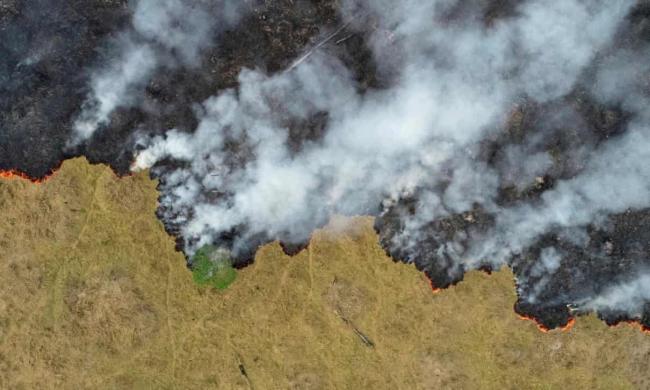Articles Menu

Now, 20 years later, we are facing a health crisis of an altogether different scale, with Covid-19 causing the most tragic health, social and economic crisis in living memory.
We have seen many diseases emerge over the years – such as Zika, Aids, Sars and Ebola – and although they are quite different at first glance, they all originated from animal populations under conditions of severe environmental pressures. And they all illustrate that our destructive behaviour towards nature is endangering our own health – a stark reality we’ve been collectively ignoring for decades. Research indicates that most emerging infectious diseases are driven by human activities.
The unsafe handling, consumption and trade in high-risk wildlife species is just one example of the ways in which our broken relationship with nature is affecting human health. In many countries, wild animals are captured and brought live to markets to be sold. However, unless well-managed and regulated, these markets can pose a significant risk to humans, wildlife and livestock, by bringing high-risk species – many of which are endangered – into close contact with other animals, wild and domesticated, and people, thereby creating the conditions for disease spillover.
Considerably strengthening and enforcing regulation, enhancing food safety, ending the illegal and unsustainable wildlife trade, and providing alternative livelihood options to reduce the consumption of wildlife everywhere are critical steps to help prevent future zoonotic diseases from emerging. It is therefore encouraging to see some progress in recent months: in February, China announced a temporary ban on the trade and consumption of wild animals, which it is now looking to make permanent; while Vietnam has signalled it may take similar steps to help curb the spread of disease and prevent future outbreaks.
While action on the illegal, unregulated and high-risk wildlife trade is important, we must not make the mistake of thinking it is sufficient. We must also urgently tackle the underlying issues that are driving the destruction of nature.
We must recognise that the way we currently produce and consume food, and our blatant disregard for the environment more broadly, has pushed the natural world to its limits. Nature is currently declining globally at rates unprecedented in human history, and this is actually increasing our vulnerability to new diseases, particularly as a result of land-use change through activities such as deforestation, and agricultural and livestock intensification. These outbreaks of disease are manifestations of our dangerously unbalanced relationship with nature.
Worryingly, while Covid-19 has given us yet another reason to protect and preserve nature, we have actually seen the reverse take place. From the Greater Mekong to the Amazon and Madagascar, alarming reports have emerged of increased poaching, illegal logging and forest fires, while many countries are engaging in hasty environmental rollbacks and cuts in funding for conservation. This all comes at a time when we need it most.
As the world emerges from this crisis, it is crucial that governments restore ecosystems and put economies on a sustainable path if we’re to reduce our vulnerability to health threats.
We must embrace a just, healthy and green recovery, and kickstart a wider transformation towards a model that values nature as the foundation for a healthy society, and a well-resourced and equitable economy. This means shifting to more sustainable practices, such as regenerative and diversified agriculture and diets, sustainable animal farming, green urban spaces and clean forms of energy.
Not doing so, and instead attempting to save money by neglecting environmental protection, health systems and social safety nets, has already proven to be a false economy. The bill will be paid many times over.
The UN biodiversity summit, scheduled for September, offers world leaders a first opportunity to signal their support for a new relationship with our natural world. We hope they will take it and accelerate action through to next year when they are scheduled to take critical decisions on the environment, climate and development. Together, these represent an unmissable opportunity to secure a new deal for nature and people that sets nature on the path to recovery by the end of the decade and safeguards human health and livelihoods in the long term.
Rebalancing our relationship with nature will require concerted effort and determination. But it will also create a healthier and more prosperous future for people and planet, and put us in a better position to prevent the next pandemic. Surely, it is an effort we should all be willing to make.
• Marco Lambertini is director general of WWF International; Elizabeth Maruma Mrema is executive secretary of the UN Convention on Biological Diversity; Maria Neira is director of the World Health Organization department of environment, climate change and health
[Top photo: Deforestation in the Amazon jungle, Brazil, 2019. Photograph: Ueslei Marcelino/Reuters]